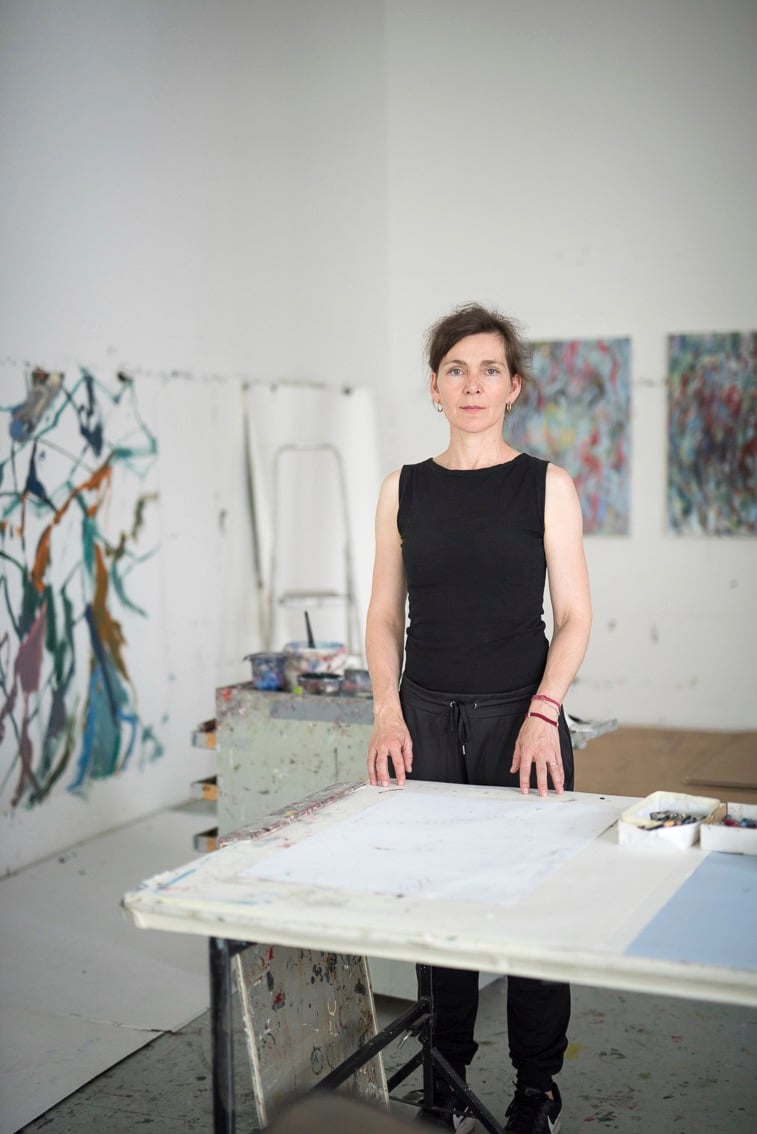
Artist Sabine Moritz has been at work over the past year processing its seismic political, economic, and environmental shifts through her art.
The resulting works—paintings, works on paper, and photographs—are currently on view online at Pilar Corrias gallery in a solo exhibition titled “Mercy.” The works fit in with her broader abstract and figurative oeuvre, which often interrogates memory, how it is formed, and the ways it is continuously reformed.
To create her works, the artist engages with personal experiences, such as her childhood in East Germany, as well as with more abstract ideas about collective history, transience, and decay.
We caught up with the artist from the tranquil surroundings of her studio in a former cardboard factory in Cologne, which she used to share with her husband, Gerhard Richter, but now has all to herself.
What are the most indispensable items in your studio and why?
Paint, brushes, canvas, and the view from my window.
What is the studio task on your agenda tomorrow that you are most looking forward to?
I’m always looking forward to paint.
What kind of atmosphere do you prefer when you work?
Warmth, silence, and a cloudy sky.
Do you listen to music or podcasts, or do you prefer silence?
Music and stories.
What trait do you most admire in a work of art?
To never tire of looking at a work of art.
What trait do you most despise?
Propaganda? Calculation? Manipulation?
What snack food could your studio not function without?
Coffee, tea, and chocolate.
When you feel stuck in the studio, what do you do to get un-stuck?
I change the artwork I’m currently working on, the work area or the room I’m in.
What is the last exhibition you saw, virtual or otherwise, that made an impression on you?
The Titian exhibition at the National Gallery in London.
How would you describe your mood right now?
Cheerful, desperate, and pensive.
“Sabine Moritz: Mercy” is on view online at Pilar Corrias through April 17.